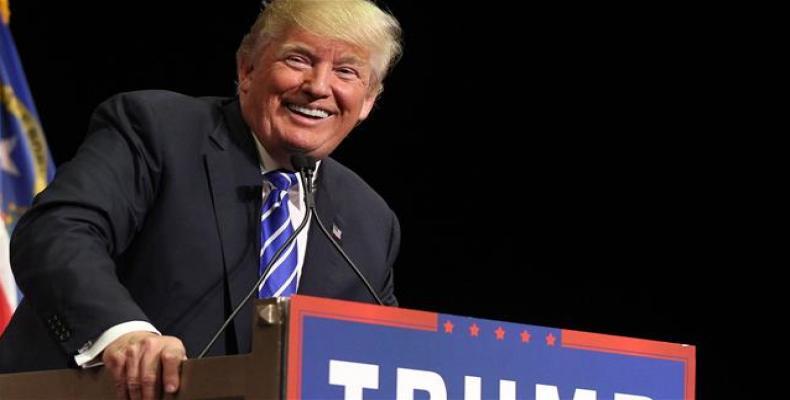Brasilia, October 29 (RHC)-- A Brazilian prosecutor investigating potentially corrupt investments made by state pension funds said the real estate company run by Republican presidential candidate Donald Trump appears to have benefited "suspiciously" from a massive redevelopment of Rio de Janeiro's port ahead of the Olympics.
The development, known as Porto Maravilha, or Marvelous Port in Portuguese, cost 8 billion reais ($2.5 billion U$D) and developed run-down docklands into a plaza, museums, corporate and residential real estate. As part of the project, five 38-story buildings were meant to be erected under the Trump brand.
Public prosecutor Alselmo Lopes said in a court filing made public that he is investigating the Porto Maravilha deal in which the national employee severance fund FGTS, managed by state bank Caixa Economica Federal (CEF.UL), paid up front for building rights which it then resold.
The structuring of the Porto Maravilha deal "favored, in a suspicious way, the Trump Organization economic group," among others, Lopes said. The prosecutor gave no further details and was not immediately reachable for comment.
His spokeswoman, Dionne Tiago, said Lopes would not explain the basis for his suspicions until next week. None of the five people Lopes sought to charge in the court filing for siphoning off 8 billion reais from the Caixa pension fund were related to the Trump Organization.
The Trump Organization, which sold naming rights for the Rio towers but did not provide any funding for the project, did not immediately respond to requests for comment.
Donald Trump Franchise May Have Benefited from Corruption in Brazil

Rilataj Artikoloj
Komentarioj
Lasu komentarion
Ĉiuj kampoj bezonatasPliaj Vidaĵoj
- Kuba ŝtatestro konfirmis la kunlaboran pretecon kun Eŭroazia Ekonomia Unio
- Ekigis Air China komercan kargotransporton al Kubo
- Trump anoncas ke pli ol miliono da enmigrintoj estos deportitaj jare
- Kuba ŝtatestro partoprenis kunvenon de la supera eŭroazia ekonomia konsilio
- Hispana vicprezidento dialogas kun vicĉefministro kuba

